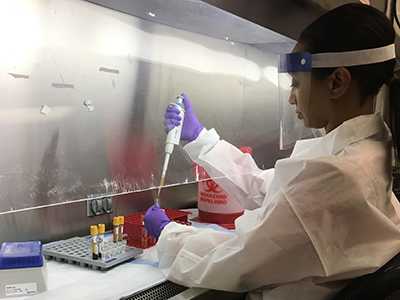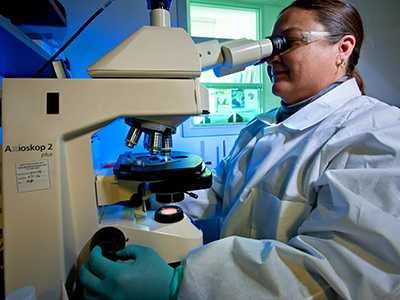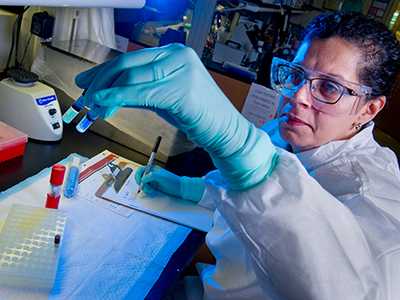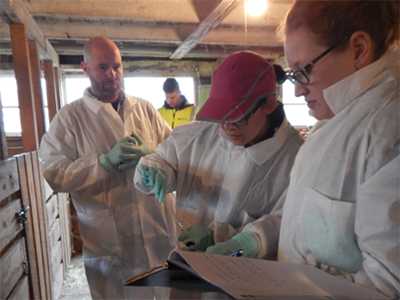
Overview
The CDC Laboratory Leadership Service (LLS) fellowship program focuses on developing laboratory scientists who integrate safety and quality as principal elements in all of in their work, which is vital to protecting the public’s health, safety, and security.
A two-year competency-based service learning program, LLS trains fellows in laboratory quality management, the science of biosafety, and leadership — building a strong foundation for future public health laboratory leadership and management positions.
The program is aligned with CDC’s Epidemic Intelligence Service (EIS) to promote interdisciplinary training, applied learning, and networking between laboratory scientists and epidemiologists. This program launched in 2015.
Learning
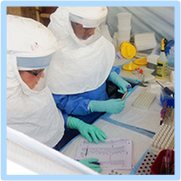
LLS fellows learn through on-the-job experience, classroom instruction, case studies, exercises, and e-learning. LLS fellows:
- Begin training in July with an intensive, one-month orientation in Atlanta, Georgia
- Obtain education through hands-on activities under mentorship and guidance from CDC laboratory supervisors
- Apply public health laboratory competencies—particularly those focused on biosafety, quality management systems, and management and leadership—as they approach real world public health scenarios
- Present findings from investigations and studies during regular seminars and annual conferences
- Share training, conduct investigations, and network with EIS officers and other CDC fellows throughout their fellowship
Service
LLS fellows provide on-the-job service to CDC and state and local public health laboratories as they:
- Design, implement, or evaluate public health laboratory biosafety practices and quality management systems
- Conduct cutting-edge applied public health laboratory research (e.g., evaluate new diagnostic tests or apply bioinformatics to analyze complex laboratory data)
- Conduct laboratory components of public health investigations
- Respond to emerging public health threats
- May study infectious and chronic diseases, environmental and occupational health threats, birth defects, and developmental disabilities
LLS fellows may have the opportunity to participate in a Lab-Aid. A Lab-Aid provides rapid, short-term laboratory assistance to state, local, and federal partners to address urgent public health laboratory concerns. A Lab-Aid may:
- Provide laboratory services during an outbreak investigation or technical assistance related to quality management systems or laboratory safety
- Focus on biosafety or quality management systems, or on the laboratory aspects of public health investigations.
Laboratory Safety at CDC
CDC’s guiding principles for laboratory work are to ensure the safety of all staff and the community and be as transparent as possible about our work as we conduct high-quality scientific research to protect people in this country and around the world.
LLS was established as one of the multiple improvements to lab safety practices and procedures across the agency, with the goal of increasing CDC’s culture of safety. As such, the core competencies of the LLS fellowship program are designed to instill excellence through training and education in laboratory quality management, the science of biosafety, and leadership.
Visit CDC’s laboratory safety website to stay informed on laboratory safety efforts.
- Page last reviewed: October 13, 2017
- Page last updated: October 13, 2017
- Content source:


 ShareCompartir
ShareCompartir
